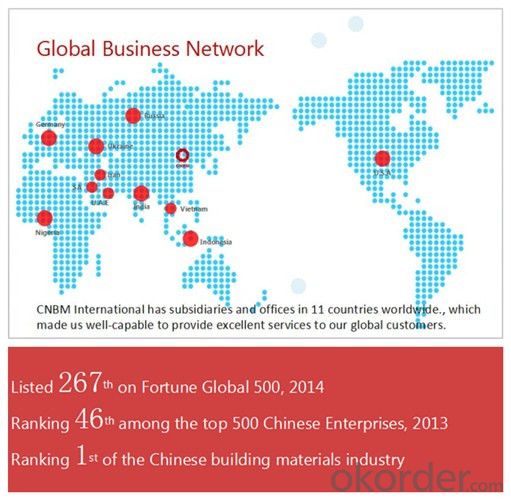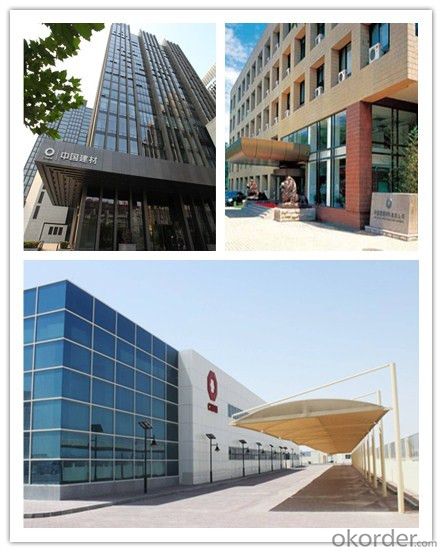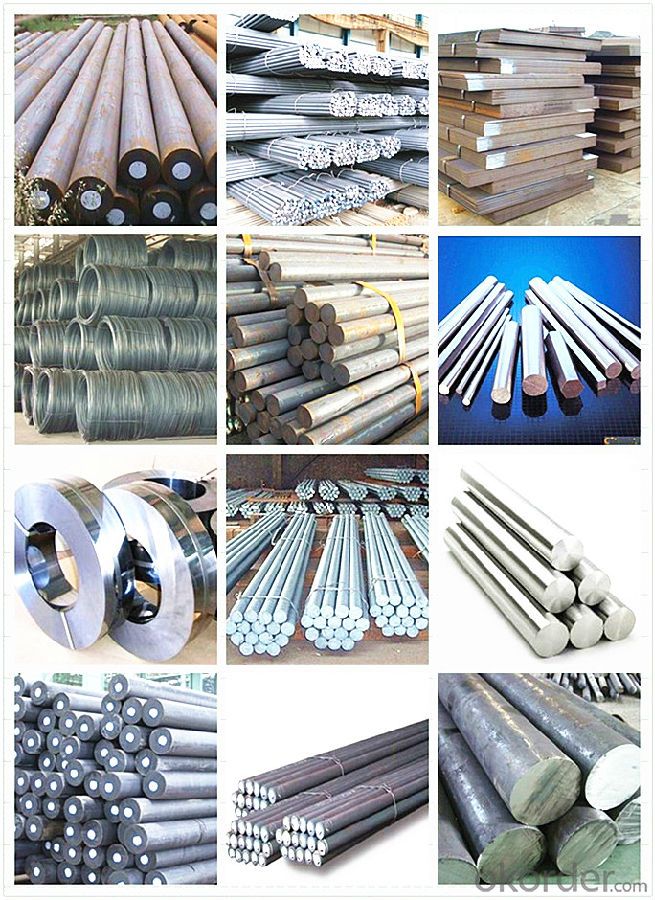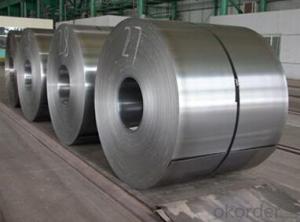Grade JIS SGCH G550 Galvanized Steel Coil
- Loading Port:
- Tianjin
- Payment Terms:
- TT OR LC
- Min Order Qty:
- 3 m.t.
- Supply Capability:
- 10000 m.t./month
OKorder Service Pledge
OKorder Financial Service
You Might Also Like
Item specifice
Grade JIS SGCH G550 Galvanized Steel Coil
Specification of Grade Grade JIS SGCH G550 Galvanized Steel Coil
1. Galvanized Steel Coil
(1) Width: 600-1570mm
(2) Thickness: 0.13-5.0mm
(3) Grade: JIS G3302-SGCC-SGC570, SGCH (full hard-G550), SGHC-SGH540
EN10346-DX51D+Z, DX53D+Z, S250GD-S550GD
STM A653-CS-B, SS255-SS550
(4) Zinc Coating: Z40g/m2~Z500g/m2 (both side total coating thickness)
2. Galvalume Steel Coil
(1) Width: 600~1500mm
(2) Thickness: 0.15~2.30mm
(3) Grade: JIS G3321-SGLCC, SGLC400-570, (G550)
EN10346-DX51D+AZ, DX53D+AZ, S250-S550
ASTM A792M CS-B, SS255-SS550
(4) AZ Coating: AZ50~AZ185g/m2
3. Prepainted Galvanized Steel Coil (PPGI)
(1) Width: 600~1250mm
(2) Thickness: 0.19~1.50mm
(3) Grade: JIS G3312-CGCC, CGC340-570, (G550)
ASTM A755M CS-B, SS255-SS550
(4) Zinc Coating: Z40g/m2~Z500g/m2 (both side total coating thickness)
4. Prepainted Galvanized Steel Coil (PPGL)
(1) Width: 600~1250mm
(2) Thickness: 0.20~1.50mm
(3) Grade: JIS G3322-CGLCC, CGLC340-570, (G550)
ASTM A755M CS-B, SS255-SS550
(4) AZ Coating: AZ50~AZ185g/m2 (both side total coating thickness)
5. Cold Rolled Steel Coil (Soft) (for further information, pls click the product name)
(1) Width: 600~1570mm
(2) Thickness: 0.13~2.50mm
(3) Grade: JIS G3141-SPCC-SD, SPCD-SD, SPEC-SD
JIS G3135-SPFC 340/390/440
EN10130-DC01, DC03, DC04
SAE1006, SAE1008
ASTM A424-TypeⅡ
6. Cold Rolled Steel Coil (Full Hard) (for further information, pls click the product name)
(1) Width: 600~1570mm
(2) Thickness: 0.13~2.50mm
(3) Grade: JIS G3141-SPCC-1B, SPCC-1D
7. Hot Rolled Steel Coil
(1) Width: 1000~1524mm
(2) Thickness: 1.20~16.5mm, other thickness can be negotiation
(3) Grade: JIS G3101-SS400, JIS G3132-SPHT1/2/3, ASTM A36, Q195, Q235 etc.
Company Introduction of the Grade JIS SGCH G550 Galvanized Steel Coil
CNBM International Corporation is the most import and export platform of CNBM group(China National Building Material Group Corporation) ,which is a state-owned enterprise, ranked in 270th of Fortune Global 500 in 2015.
With its advantages, CNBM International are mainly concentrate on Cement, Glass, Iron and Steel, Ceramics industries and devotes herself for supplying high quality series of refractories as well as technical consultancies and logistics solution.


Packaging & Delivery Grade Grade JIS SGCH G550 Galvanized Steel Coil
Packaging Detail | Sea worthy packing /as per customer's packing instruction |
Delivery Detail | 15 ~ 40 days after receiving the deposit |
Products Show:

FAQ:
Are you a trading company or manufacturer? | Manufacturer |
What’s the MOQ? | 3 metric ton |
What’s your delivery time? | 15-35 days after downpayment received |
Do you Accept OEM service? | Yes |
what’s your delivery terms? | FOB/CFR/CIF |
What's the Payment Terms? | 30% as deposit,70% before shipment by T/T |
Western Union acceptable for small amount. | |
L/C acceptable for large amount. | |
Scrow ,Paybal,Alipay are also ok | |
Why choose us? | Chose happens because of quality, then price, We can give you both. Additionally, we can also offer professional products inquiry, products knowledge train (for agents), smooth goods delivery, excellent customer solution proposals. |
What's your available port of Shipment? | Main Port, China |
What’s your featured services? | Our service formula: good quality+ good price+ good service=customer's trust
|
Where are your Market? | Covering more than 160 countries in the world |
- Q:How is maraging steel used in the production of rocket and missile components?
- Maraging steel is utilized in the manufacturing of rocket and missile components due to its exceptional strength, toughness, and resistance to fatigue and stress. Its unique properties make it ideal for critical parts such as pressure vessels, casings, nozzles, and structural elements, where high-performance materials are required to withstand extreme conditions during launch and flight. Maraging steel's ability to maintain its integrity under intense heat, pressure, and vibrations makes it a crucial material for ensuring the reliability and safety of rocket and missile systems.
- Q:How does special steel contribute to improving product durability?
- Special steel contributes to improving product durability by providing enhanced strength, corrosion resistance, and wear resistance properties. Its unique composition and manufacturing processes make it highly resilient to mechanical stress, extreme temperatures, and harsh environmental conditions, thus ensuring the longevity and reliability of the products it is used in. Furthermore, special steel's exceptional properties allow for the production of lighter and more compact components, leading to increased efficiency, reduced maintenance needs, and improved overall product performance.
- Q:How is special steel used in the production of pressure vessels?
- Special steel is used in the production of pressure vessels due to its unique properties that make it suitable for withstanding high pressure environments. Pressure vessels are containers designed to hold gases or liquids at a pressure significantly different from the surrounding atmosphere. These vessels are commonly used in industries such as oil and gas, chemical, and power generation. The use of special steel in pressure vessel production is crucial to ensure the safety and reliability of these containers. Special steels, such as carbon steels, stainless steels, and alloy steels, offer enhanced mechanical properties, high strength, and excellent corrosion resistance. These properties are essential for withstanding the extreme pressure conditions experienced by pressure vessels. One of the primary functions of special steel in pressure vessel production is to provide resistance against internal pressure. The steel needs to be able to withstand the force exerted by the contents of the vessel without deforming or rupturing. The high strength and toughness of special steels make them capable of handling these pressures, ensuring the integrity of the vessel and preventing catastrophic failures. Special steel also plays a vital role in maintaining the structural integrity of pressure vessels. These vessels are subjected to various external loads, such as wind, seismic forces, and thermal expansion. The superior mechanical properties of special steel enable it to bear these loads without significant deformation or failure, ensuring the structural stability of the pressure vessel. Furthermore, special steel's resistance to corrosion is essential in the production of pressure vessels. Pressure vessels often contain corrosive substances, and the corrosive environment can lead to the degradation of the material over time. Special steels, especially stainless steels, offer excellent resistance to corrosion, minimizing the risk of material deterioration and maintaining the vessel's longevity. In summary, special steel is used in the production of pressure vessels due to its high strength, toughness, and corrosion resistance. These properties enable the steel to withstand high pressure conditions, maintain structural integrity, and prevent corrosion-related failures. By utilizing special steel, pressure vessel manufacturers can ensure the safety, reliability, and longevity of these critical containers.
- Q:How does special steel perform in terms of electrical resistivity?
- Special steel typically has a relatively high electrical resistivity, which means it offers greater resistance to the flow of electric current compared to other materials. This property makes special steel useful in applications where low electrical conductivity is required, such as in electrical resistors or magnetic cores.
- Q:How is martensitic steel used in knife making?
- Martensitic steel is commonly used in knife making due to its excellent hardness, strength, and ability to hold a sharp edge. This type of steel undergoes a heat treatment process called quenching, which transforms its structure to be very hard and brittle. Knives made from martensitic steel are highly durable and resistant to wear and corrosion, making them ideal for various cutting tasks.
- Q:What are the different methods for annealing special steel?
- Special steel can be annealed using various methods, each with its own objectives and outcomes. Some commonly employed techniques include the following: 1. Full annealing: To achieve maximum softness and enhanced ductility, the steel is heated above its critical temperature and held there for a specific duration. It is then gradually cooled to room temperature. This process facilitates easier machining and manipulation of the steel. 2. Isothermal annealing: After heating the steel above its critical temperature, it is promptly transferred to a furnace or chamber where it is maintained at a constant temperature. This controlled cooling results in a uniform and fine-grained microstructure. Isothermal annealing is particularly beneficial for complex-shaped parts, minimizing distortion and improving dimensional stability. 3. Spheroidize annealing: This technique is commonly employed for high-carbon steels. The steel is heated to a temperature slightly below its critical temperature and kept there for an extended period. This encourages the formation of spheroidized carbides, enhancing machinability and reducing brittleness. 4. Process annealing: Cold-worked steel undergoes this method to alleviate internal stresses and decrease hardness. The steel is heated below its critical temperature and then cooled in still air. Process annealing restores ductility and enhances formability. 5. Stress-relief annealing: Residual stresses resulting from welding or machining can be relieved using this method. The steel is heated below its critical temperature and then slowly cooled. Stress-relief annealing minimizes distortion and prevents cracking. It is crucial to consider factors such as steel composition, desired mechanical properties, and intended application when selecting the appropriate annealing method for special steel.
- Q:How does special steel contribute to the electrical resistance of products?
- Special steel can contribute to the electrical resistance of products by providing a higher resistance to the flow of electric current. This is achieved by alloying the steel with specific elements that increase its resistivity, making it suitable for applications where low electrical conductivity is desired.
- Q:What are the specific requirements for special steel used in the power transmission industry?
- The durability, strength, and resistance to various environmental factors are crucial requirements for special steel used in the power transmission industry. Power transmission equipment operates under high loads, extreme temperatures, and corrosive conditions, making these requirements essential. Here are some specific requirements for special steel in this industry: 1. High strength is necessary for the steel to withstand the mechanical stresses and loads imposed by power transmission equipment. This ensures effective weight carrying and resistance to deformation or failure. 2. Sufficient hardness is needed to resist wear and abrasion. The constant friction and contact in power transmission equipment require steel that can withstand these forces without quick deterioration. 3. Excellent resistance to corrosion and rusting is crucial due to the frequent exposure of power transmission equipment to moisture, chemicals, and other corrosive substances. The steel must withstand these conditions without deteriorating. 4. High heat resistance is necessary as power transmission equipment operates at high temperatures, especially in power generation and distribution. This prevents deformation, strength loss, and failure under extreme thermal conditions. 5. Good electrical conductivity is required for certain power transmission components to ensure efficient electricity transmission. Steel used for conductive purposes must have low electrical resistance to minimize power loss during transmission. 6. Excellent fatigue resistance is important for special steel used in the power transmission industry. This means the steel can withstand repeated cycles of stress and strain without cracking or breaking, ensuring long-term reliability and durability. 7. Dimensional stability is crucial for the steel to maintain its intended design and functionality over time, even under different operating conditions. In conclusion, the specific requirements for special steel in the power transmission industry include high strength, hardness, corrosion resistance, heat resistance, electrical conductivity, fatigue resistance, and dimensional stability. These requirements allow the steel to withstand demanding operational conditions and provide reliable and efficient power transmission.
- Q:What are the main advantages of using special steel in the power generation industry?
- Special steel offers several advantages in the power generation industry. Firstly, its high strength and durability make it suitable for withstanding the demanding operating conditions and extreme temperatures experienced in power plants. This ensures reliable performance and minimizes the risk of equipment failure, thereby increasing the overall efficiency and safety of power generation processes. Additionally, special steel's resistance to corrosion and oxidation prevents degradation over time, enabling longer equipment lifespan and reducing maintenance costs. Furthermore, its excellent heat transfer properties facilitate efficient energy conversion, contributing to improved power generation efficiency and reduced environmental impact. Overall, the use of special steel in the power generation industry enhances operational reliability, longevity, and efficiency, making it a preferred choice for various critical components and infrastructure.
- Q:How is special steel used in the manufacturing of bearings?
- Special steel is used in the manufacturing of bearings due to its unique properties that make it suitable for this application. Bearings are crucial components used in various industries to reduce friction between moving parts, facilitate smooth motion, and support loads. The use of special steel in their manufacturing ensures high performance and durability. Special steel, such as stainless steel or high-carbon chromium steel, is preferred for bearing production because of its excellent strength, hardness, and corrosion resistance. These properties enable the bearings to withstand heavy loads, resist wear and tear, and operate in challenging environments. The manufacturing process for bearings involves shaping and heat treatment. Special steel is first melted and cast into the desired shape, typically a ring or a ball. Then, the steel undergoes various heat treatment processes such as annealing, quenching, and tempering to enhance its hardness, toughness, and overall mechanical properties. This heat treatment ensures that the steel is properly hardened to endure the stress and friction it will experience during operation. Once the steel is properly heat-treated, it is machined and ground to achieve precise dimensions and smooth surfaces. This step is crucial to ensure that the bearings have the necessary tolerance and can rotate smoothly without any interference. Special steel's machinability and grindability make it easier to achieve the required accuracy and surface finish. After the machining process, the bearings can be assembled with other components and lubricated to provide proper lubrication and minimize friction. Special steel's corrosion resistance is particularly valuable in this stage, as it helps protect the bearings from rust and degradation caused by moisture or aggressive environments. In summary, special steel is used in the manufacturing of bearings due to its superior strength, hardness, and corrosion resistance. These properties allow bearings to withstand heavy loads, resist wear, and operate in challenging conditions. With its excellent machinability and grindability, special steel ensures that the bearings achieve the necessary precision and surface finish. Overall, special steel plays a crucial role in producing high-quality bearings that enable efficient and reliable motion in various industries.
1. Manufacturer Overview |
|
|---|---|
| Location | |
| Year Established | |
| Annual Output Value | |
| Main Markets | |
| Company Certifications | |
2. Manufacturer Certificates |
|
|---|---|
| a) Certification Name | |
| Range | |
| Reference | |
| Validity Period | |
3. Manufacturer Capability |
|
|---|---|
| a)Trade Capacity | |
| Nearest Port | |
| Export Percentage | |
| No.of Employees in Trade Department | |
| Language Spoken: | |
| b)Factory Information | |
| Factory Size: | |
| No. of Production Lines | |
| Contract Manufacturing | |
| Product Price Range | |
Send your message to us
Grade JIS SGCH G550 Galvanized Steel Coil
- Loading Port:
- Tianjin
- Payment Terms:
- TT OR LC
- Min Order Qty:
- 3 m.t.
- Supply Capability:
- 10000 m.t./month
OKorder Service Pledge
OKorder Financial Service
Similar products
New products
Hot products
Related keywords

































